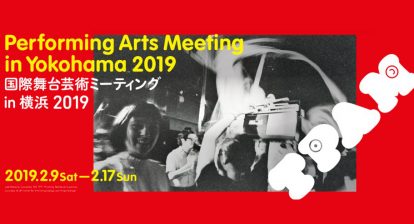June 21, 2018 – After the Arts and Heritage Access and Availability survey, the arts sector can rely on another major audience survey to figure out what the heck is going on with cultural participation in Canada.
After four years of hard work by Business/ Arts, with support from the Canadian Arts Summit and arts service organizations such as CAPACOA, the first edition of Culture Track Canada was released yesterday.
This groundbreaking study looks at how Canadians define and interact with the arts. Based on interviews with more than 6,400 culture-goers from coast-to-coast. The data provides critical insight into audience behaviour that will help arts organizations, businesses and government navigate the Canadian cultural landscape and stay relevant to the evolving cultural consumer.
The findings dispel many of the commonly held myths about who is attending arts events and why, the issues of generational giving and the importance of technology (or lack thereof) for today’s arts audience.
Is your audience homogeneous?
Perhaps it’s because your programming itself isn’t perceived as relevant by the most culturally active segments of Canadians:
- In keeping with Canada’s multicultural reputation, Allophones (those who speak a language other than English or French at home) are more culturally active than Anglophones or Francophones, across all generations. These cultural consumers, who are often first-generation immigrants or immigrants themselves, participate in 3.1 cultural activities per month, compared to 2.1 for Anglophones and 2.7 for Francophones.
- Indigenous Peoples and people of colour are 65% more likely to stay away because activities don’t reflect people of a range of backgrounds.
Do hold on firmly to the belief that audiences are first and foremost looking for artistic excellence?
It may be time to let go of this assumption.
- The single greatest motivator for attending cultural activities is unanimous: having fun. Cultural organizations may scoff at the word “fun” because it seems to distract from their missions, but audiences believe they are not mutually exclusive.
- Many important motivators are related to the principle of discovery. Culture exposes us to new ideas, histories, and ways of thinking. At their best, cultural experiences offer perspective on the world that we may not have had before.
 During the launch, Arthur Cohen, CEO of LaPlaca Cohen, provided this very pertinent commentary on the place of culture in Canadian’s life:
During the launch, Arthur Cohen, CEO of LaPlaca Cohen, provided this very pertinent commentary on the place of culture in Canadian’s life:
“People who are experiencing culture are experiencing the world. They just happen to be experiencing it through culture, as citizens, at a moment in time. We tend to, sometimes to our peril, look at an audience member only when they are having that moment and think of them in that unique identity that they are expressing, but what this kind of research reveals is that culture is just one form of expression and engagement for people who are trying to navigate, situate and understand the world around them and their relationship to it. And this idea of utility, the idea of how they are participating in culture is inextricably intertwined with what they are doing in the world at large, and who they are, and how they feel.”
Do you define culture and its impact on your own terms?
Well, Canadians definition of culture becomes broader and broader. And the benefits that they get out of it are more “instrumental” in nature than you might think.
- Considering the type of activities that Canadians participate in, their motivators, and qualitative feedback, researchers defined three core principles with regard to impact, the first of which is: community.

Thus, the results of Culture Track Canada reinforce findings from last year’s report by Community Foundations of Canada and CAPACOA, Vital Signs: Arts and Belonging.
There is a whole lot more to Culture Track Canada beyond these few insights. In addition to the report, the full data tables are available and can be explored by province.
CAPACOA will continue to dissect Culture Track Canada over the summer and fall. Expect more articles, web conferences and focused professional development at the CAPACOA Conference.
Read more about Culture Track Canada
Recent and Related News
North American Trade: From Hope to Rift
Attendance Trends: Where Are Performing Arts Audiences?



